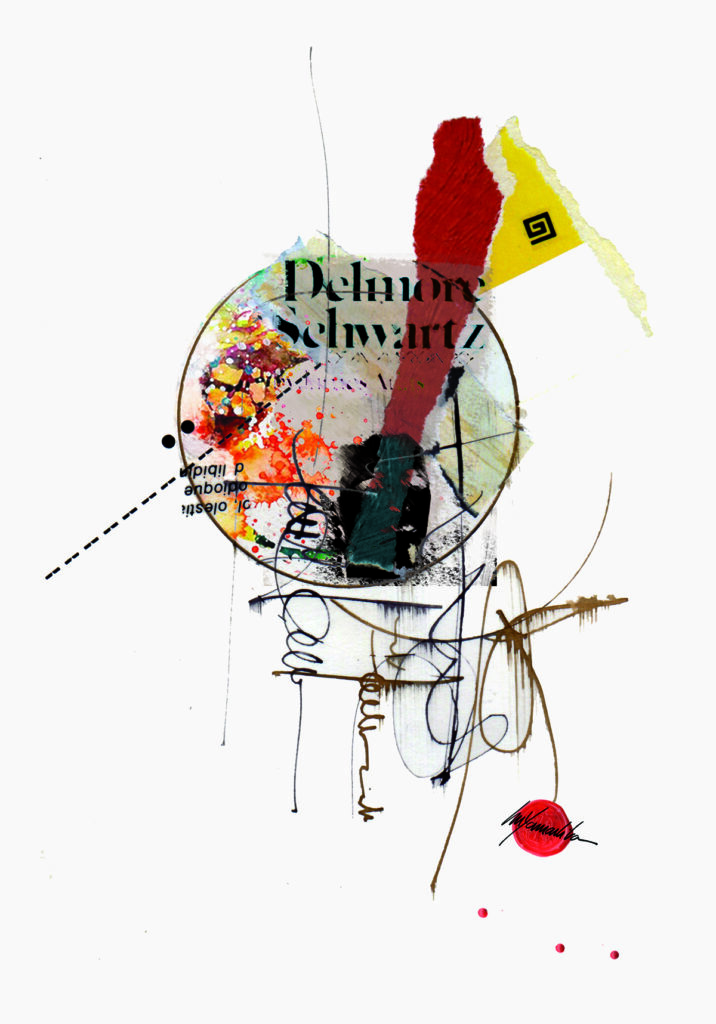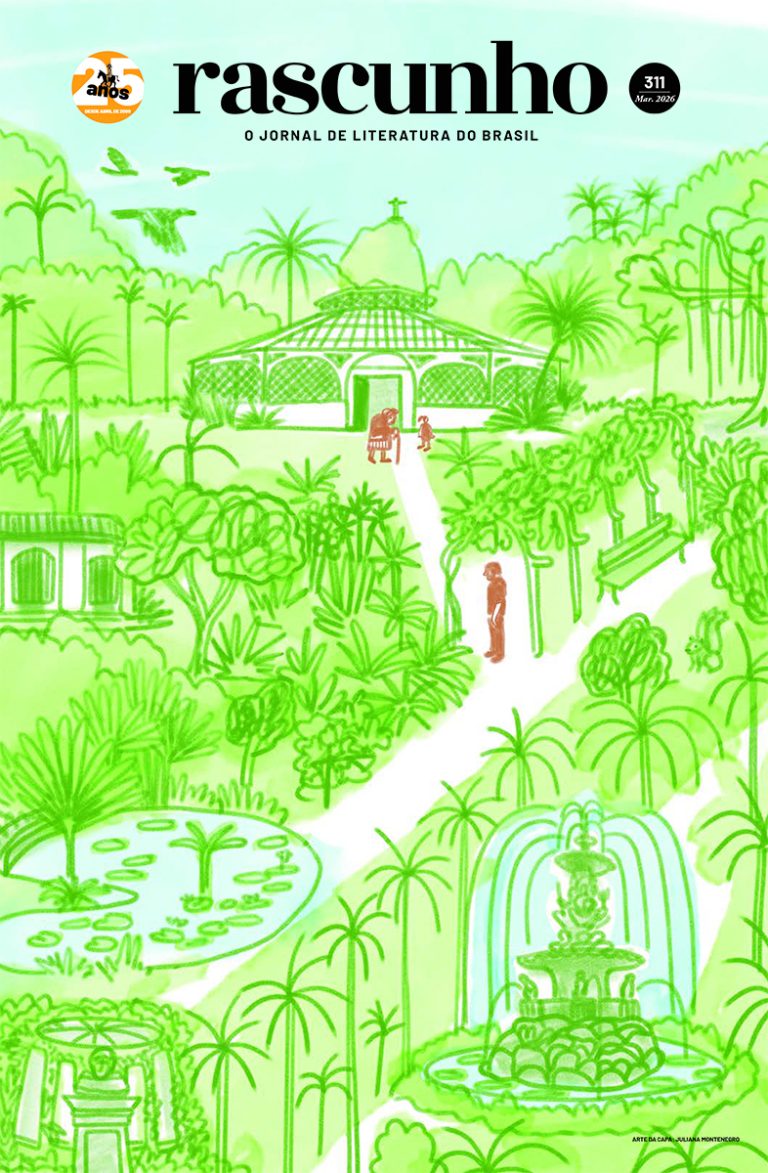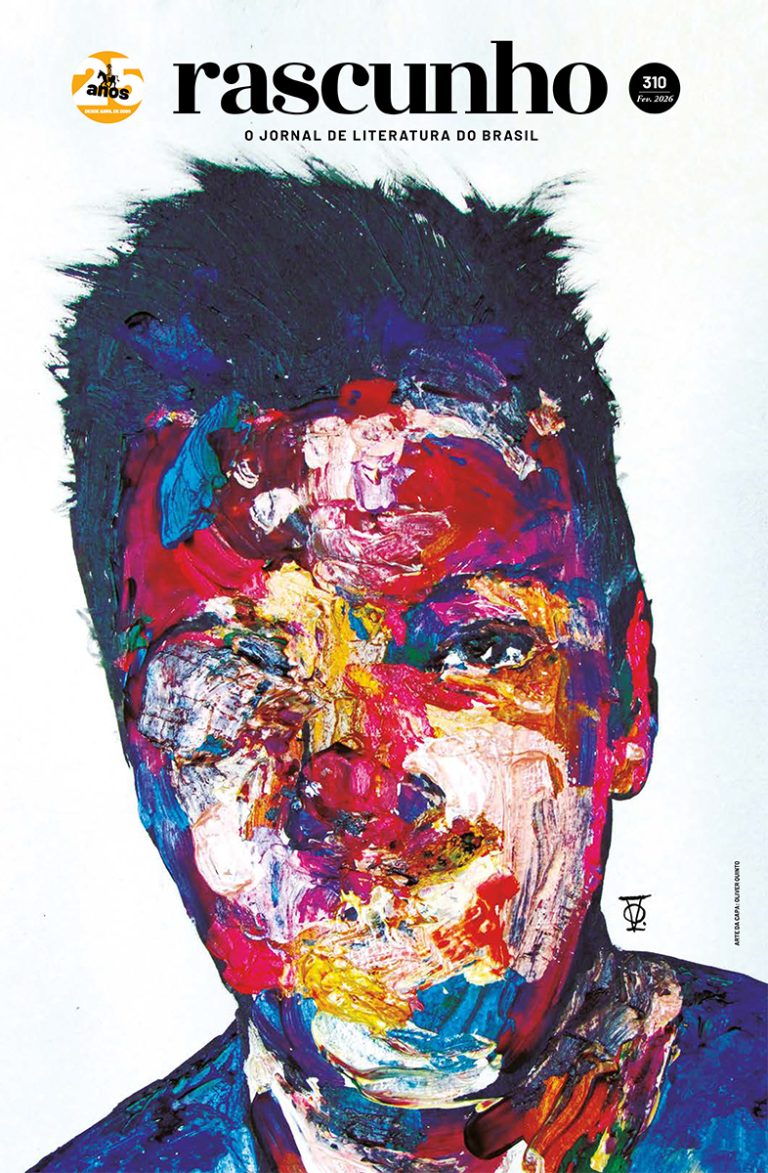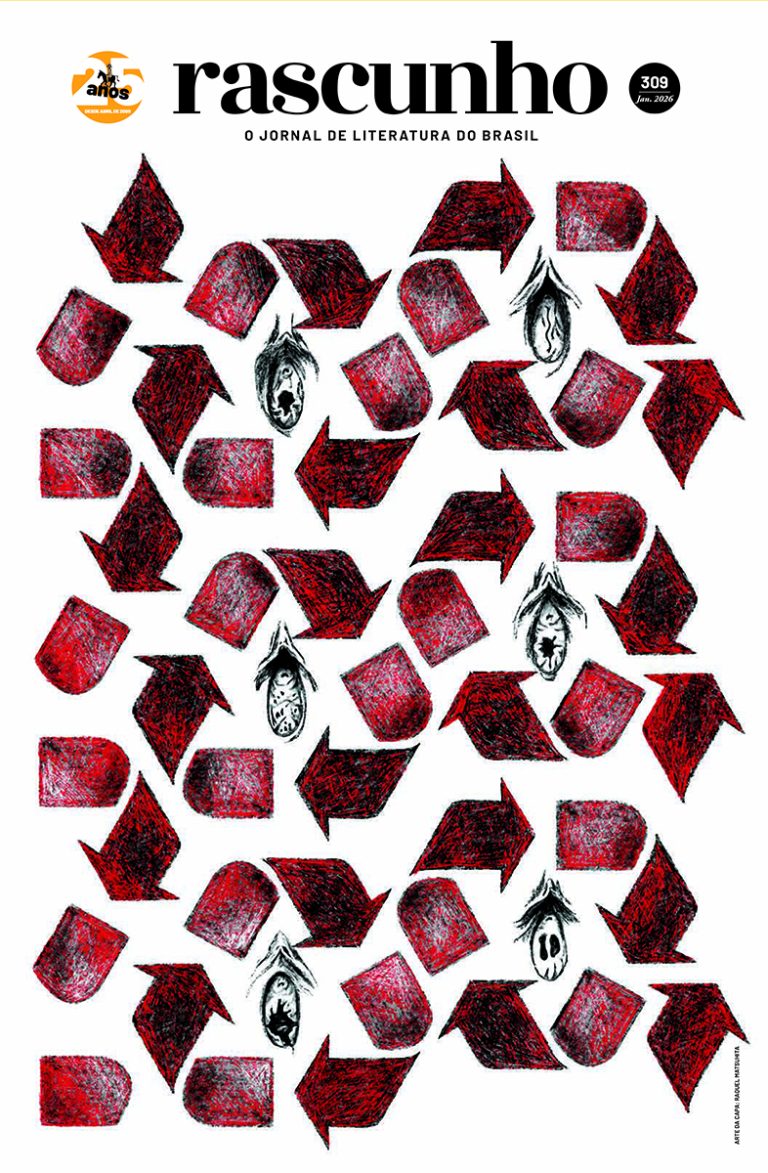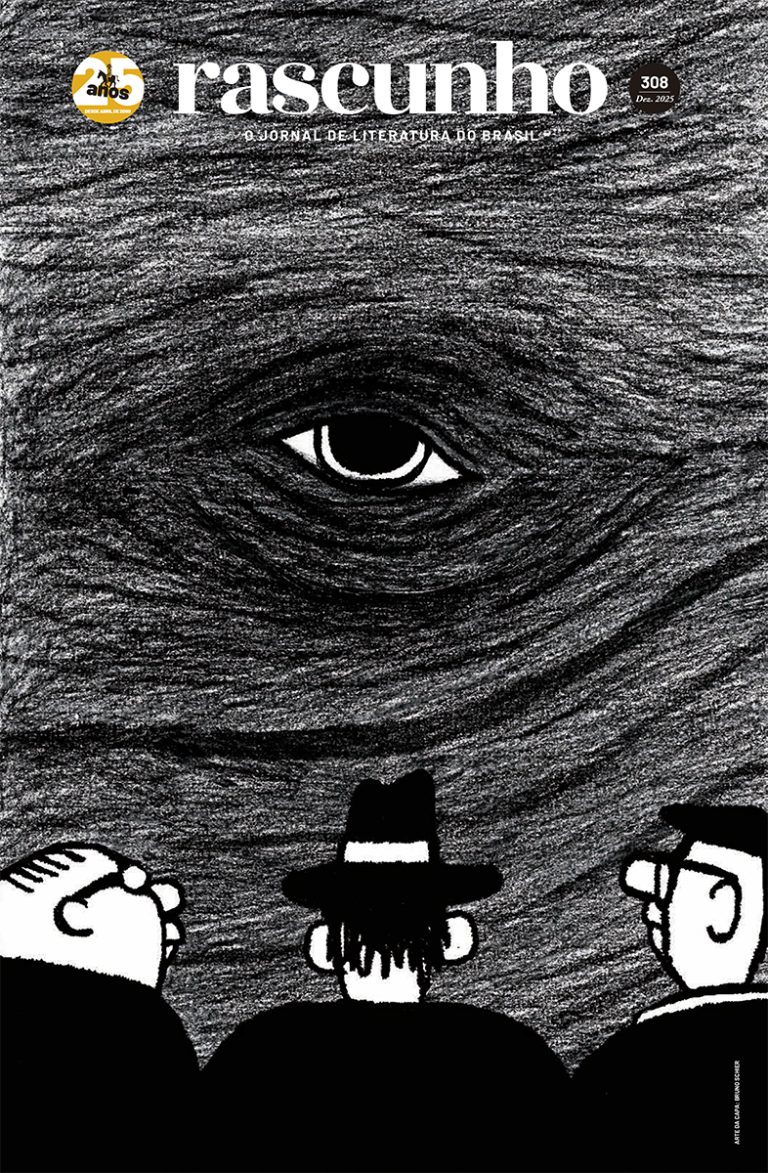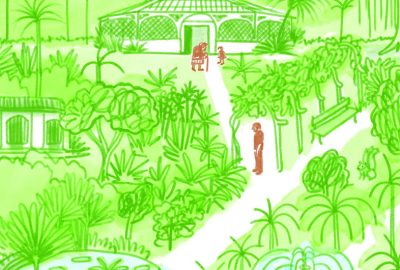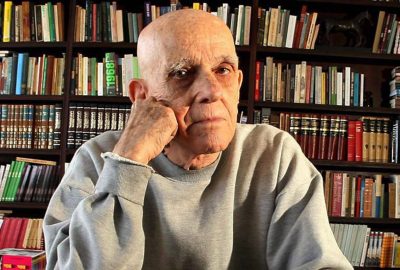Tradução e seleção: André Caramuru Aubert
The dark and falling summer
The rain was full of the freshness
and the fresh fragrance of darkening grapes,
The rain was as the dark falling of hidden
And fabulous grapes ripening, great blue thunderheads moving slowly, slowly blooming.
The dark air was possessed by the fragrance of freshness,
By a scattered and confused profusion until
After the tattering began, the pouring down came
And plenitude descended, multitudinous:
Everywhere was full of the pulsing and fallen dark.
Verão chuvoso e escuro
A chuva chegava repleta do frescor
e da fresca fragrância das uvas escuras,
A chuva era como a escuridão que caía das uvas
Fabulosas, amadurecendo escondidas, grandes trovoadas azuis movendo-se lentamente, lentamente a desabrochar.
A atmosfera escura tomada pela fragrância de frescor,
Por uma profusão confusa e dispersa, até que
Com tudo se despedaçando, veio a chuva forte
E a plenitude se espalhou, abundante:
Por toda parte, a pulsante escuridão que descia.
…………………..
In the green morning, now, once more
In the green morning, before
Love was destiny,
The sun was king,
And God was famous.
The merry, the musical,
The jolly, the magical,
The feast, the feast of feasts, the festival
Suddenly ended
As the sky descended
But there was only the feeling,
In all the dark falling,
Of fragrance and of freshness, of birth and beginning.
Na manhã verdejante, agora, mais uma vez
Na manhã verdejante, antes
Que o amor fosse destino,
O sol era rei,
E deus era famoso.
A felicidade, a música,
A alegria, a magia,
A festa, a festa das festas, o festival
Subitamente terminou
Conforme o céu desceu
E havia apenas a sensação,
Com a chegada da escuridão,
De aromas e de frescor, de nascimento e de início.
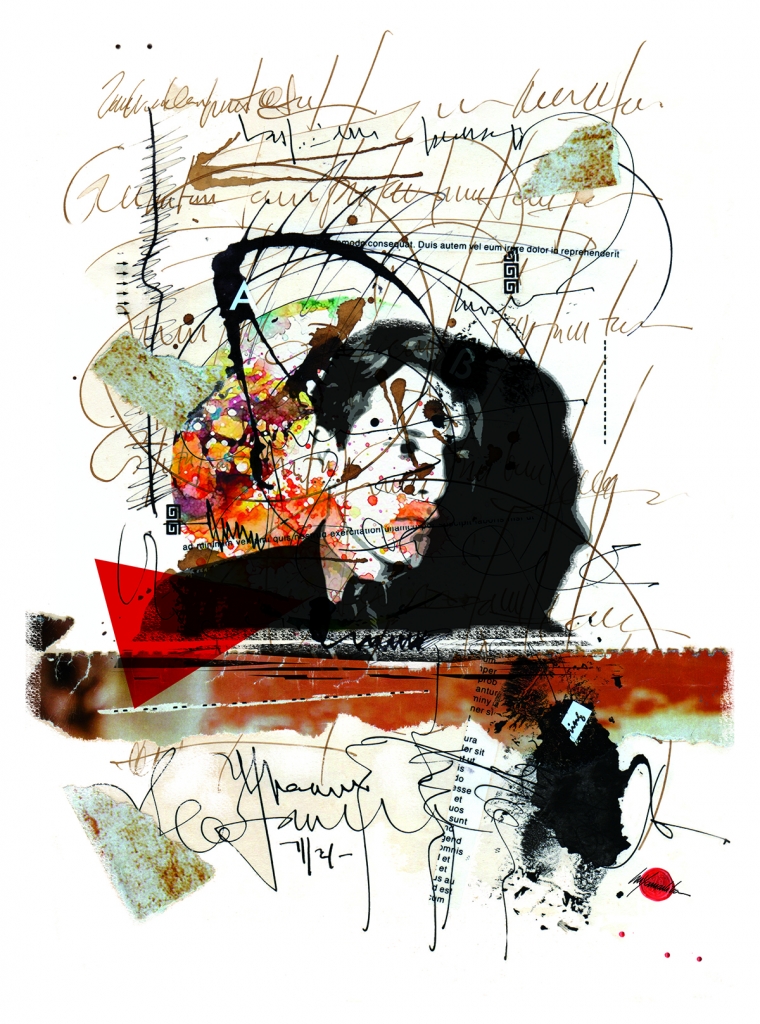
…………………..
Once and for All
Once, when I was a boy,
Apollo summoned me
To be apprenticed to the endless summer of light and consciousness,
And thus to become and be what poets often have been,
A shepherd of being, a riding master of being, holding the sun-god’s horses, leading his sheep, training his eagles,
Directing the constellations to their stations, and to each grace of place.
But the goat-god, piping and dancing, speaking an unknown tongue or the language of the magician,
Sang from the darkness or rose from the underground, whence arise
Love and love’s drunkenness, love and birth, love and death, death and rebirth
Which are the beginning of the phoenix festivals, the tragic plays in celebration of Dionysus,
And in mourning for his drunken and fallen princes, the singers and sinners, fallen because they are, in the end,
Drunken with pride, blinded by joy.
And I followed Dionysus, forgetting Apollo. I followed him far too long until I was wrong and chanted:
“One cannot serve both gods. One must choose to win and lose.”
But I was wrong and when I knew how I was wrong I knew
What, in a way, I had known all along:
This was the new world, here I belonged, here I was wrong because
Here every tragedy has a happy ending, and any error may be
A fabulous discovery of America, of the opulence hidden in the dark depths and glittering heights of reality.
De uma vez por todas
Certa vez, quando eu era pequeno,
Apolo me convocou
Para ser iniciado no eterno verão de luz e consciência,
E então me tornar e ser o que os poetas sempre foram,
Um pastor do ser, um guia-mestre do ser, controlando os cavalos do deus sol, conduzindo suas ovelhas, treinando suas águias,
Dirigindo as constelações para suas estações, dando a cada uma a graça de um lugar.
Mas o bode-deus, tocando flauta e dançando, falando numa língua desconhecida ou na linguagem dos mágicos,
Ele cantou desde a escuridão, se ergueu dos subsolos, de onde surgiram
O amor e a embriaguez do amor, o amor e o nascimento, o amor e a morte, a morte e o renascimento
Que são o começo dos festivais de fênix, as tragédias encenadas em celebração a Dionísio,
E em luto por seus príncipes bêbados e depostos, os cantores e os pecadores, depostos porque estavam, no fim das contas,
Bêbados de orgulho e cegos de alegria.
E eu segui Dionísio, esquecendo Apolo. Eu o segui até muito longe, mas estava errado e cantei:
“Não se pode servir a ambos os deuses. Deve-se fazer a escolha, ganhar ou perder.”
Mas eu estava errado e quando soube o quanto estava errado, eu soube
O que, de alguma maneira, o tempo todo soube:
Este era o novo mundo, ao qual eu pertencia, eu estava errado porque
Aqui todas as tragédias têm final feliz, e qualquer erro pode virar
Um fabuloso descobrimento da América, da opulência escondida nas profundezas sombrias e nas altitudes cintilantes da realidade.
…………………..
A young child and his pregnant mother
At four years Nature is mountainous,
Mysterious, and submarine. Even
A city child knows this, hearing the subway’s
Rumor underground. Between the grate,
Dropping his penny, he learned out all loss,
The irretrievable cent of fate,
And now this newest of the mysteries,
Confronts his honest and studious eyes —
His mother much too fat and absentminded,
Gazing far past his face, careless of him,
His fume, his charm, his bedtime, and warm milk,
As soon the night will be too dark, the spring
Too late, desire strange, and time too fast,
This first estrangement is a gradual thing
(His mother once so svelte, so often sick!
Towering father did this: what a trick!)
Explained too cautiously, containing fear,
Another being’s being, becoming dear:
All men are enemies: thus even brothers
Can separate each other from their mothers!
No better example than this unborn brother
Shall teach him of his exile from his mother,
Measured by his distance from the sky,
Spoken in two vowels,
I am I.
Uma criança e sua mãe grávida
Aos quatro anos a Natureza é montanhosa,
Misteriosa e submarina. Mesmo
Uma criança da cidade sabe disso, ouvindo o barulho
Do metrô debaixo da terra. Entre as grades,
Depositando sua moeda, ele aprende tudo sobre perder,
O irrecuperável centavo do destino,
E agora o mais novo dentre os mistérios,
Confronta estes olhos honestos e perscrutadores —
Sua mãe, excessivamente gorda e distraída,
Olhando para o infinito através dele, sem ligar para ele,
Seus humores, seu charme, sua hora de ir para a cama, o leite morno,
Tão logo a noite se torne escura demais, a primavera
Bem tarde, o desejo estranho, o tempo muito ligeiro,
O primeiro estranhamento chega aos poucos
(Sua mãe, antes tão esbelta, sempre adoentada!
O imponente pai fez isso: que belo ardil!)
Explicado com muita cautela, com temor,
Um outro ser se tornando um ser, ficando querido:
Todos os homens são inimigos: tanto que até mesmo irmãos
Podem afastar uns aos outros de suas mães!
Não há melhor exemplo do que este irmão por nascer
Devo ensinar a ele sobre esse exílio em relação à mãe,
Medido pela distância dele desde o céu,
Pronunciado com três vogais,
eu sou eu.
…………………..
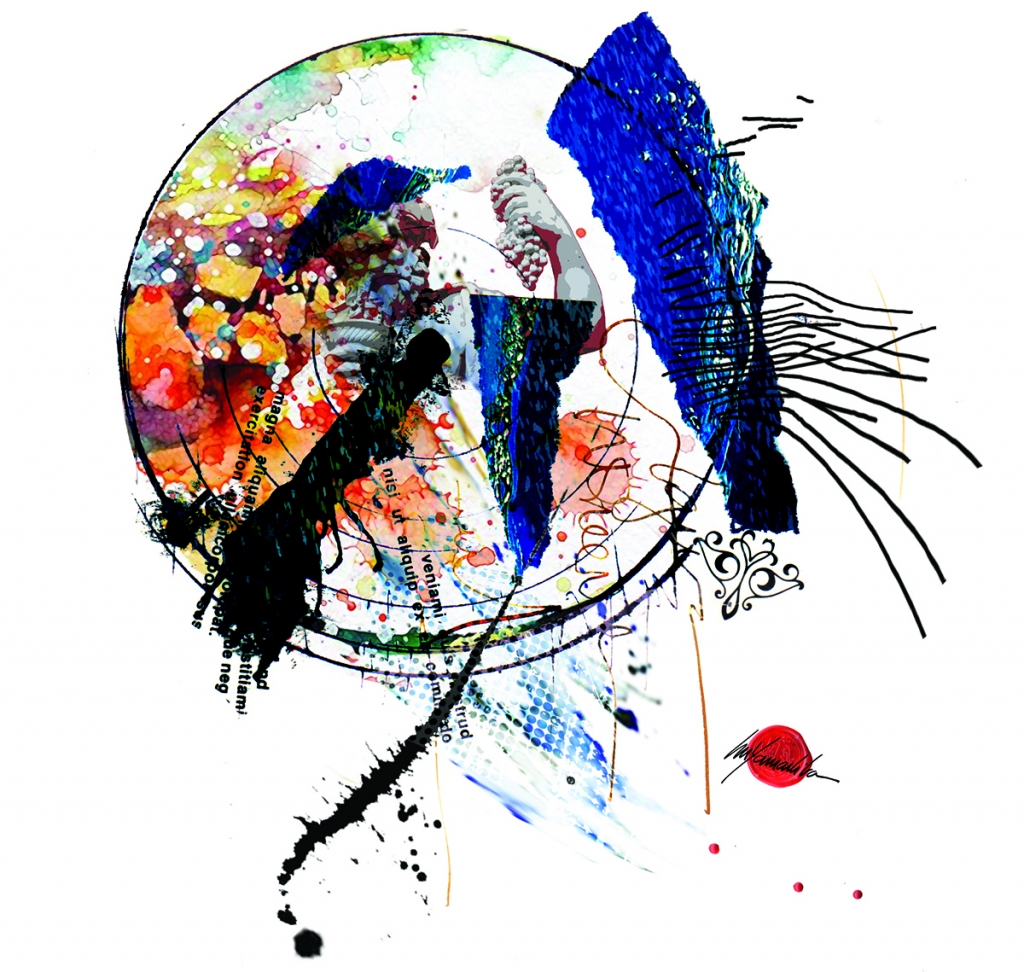
Tired and unhappy, you think of houses
Tired and unhappy, you think of houses
Soft-carpeted and warm in the December evening,
While snow’s white pieces fall past the window,
And the orange firelight leaps.
A young girl sings
That song of Gluck where Orpheus pleads with Death;
Her elders watch, nodding their happiness
To see time fresh again in her self-conscious eyes:
The servants bring the coffee, the children retire,
Elder and younger yawn and go to bed,
The coals fade and glow, rose and ashen,
It is time to shake yourself and break this
Banal dream, and turn your head
Where the underground is charged, where the weight
Of the lean buildings is seen,
Where close in the subway rush, anonymous
In the audience, well-dresses or mean,
So many surround you, ringing your fate,
Caught in anger exact as a machine!
Triste e cansado, você pensa nos lares
Triste e cansado, você pensa nos lares
Aquecidos com seus tapetes macios numa noite de dezembro,
Enquanto flocos brancos de neve caem além da janela,
E crepita a luz alaranjada da lareira.
Uma menina canta
Aquela canção de Gluck na qual Orfeu implora à Morte;
Os mais velhos observam, exalando suas felicidades
Por ver o tempo renovado nos olhos confiantes da menina:
Os empregados trazem o café, as crianças se recolhem,
Velhos e jovens bocejam e vão para a cama,
O carvão desvanece e brilha, rosa entre cinzas,
Já é tempo de se sacudir e interromper este
Sonho banal, e virar a cabeça
Lá para onde se pagam as tarifas do metrô, lá onde se pode ver
A força dos prédios elegantes,
Onde, preso ao movimento do metrô, anônimo
Na plateia, bem ou mal vestido,
Com tantos à sua volta, ressoando seu destino,
Tomado pela raiva, tal qual uma máquina!
…………………..
Albert Einstein to Archibald MacLeish
I should have been a plumber fixing drains
And mending pure white bathtubs for the great Diogenes
(who scorned all lies, all liars, and all tyrannies),
And then, perhaps, he would bestow on me — majesty!
(O modesty aside, forgive my fallen pride, O hidden majesty,
The lamp, the lantern, the lucid light he sought for
All too often — sick humanity!)
Albert Einstein para Archibald MacLeish
Eu deveria ter sido um encanador para consertar vazamentos
E remendar banheiras limpidamente brancas para o grande Diógenes
(que desprezava todas as mentiras, todos os mentirosos e todas as tiranias),
E então, talvez, ele me concedesse — majestade!
(Ó, modéstia à parte, perdoe meu orgulho decadente, Ó majestade oculta,
A lâmpada, a lamparina, a luz da lucidez que ele procurou
Com tanta frequência — na humanidade enferma!)
…………………..
Will you perhaps consent to be
“méntre il vento, come fa, si tace”
Will you perhaps consent to be
Now that a little while is still
(Ruth of sweet wind) now that a little while
My mind’s continuing and unreleasing wind
Touches this single of your flowers, this one only,
Will you perhaps consent to be
My many-branched, small and dearest tree?
My mind’s continuing and unreleasing wind
— The wind which is wild and restless, tired and asleep,
The wind which is tired, wild and still continuing,
The wind which is chill, and warm, wet, soft, in every influence,
Lusts for Paris, Crete and Pergamus,
Is suddenly off for Paris and Chicago,
Judaea, San Francisco, the Midi
— May I perhaps return to you
Wet with an Attic dust and chill from Norway
My dear, so-many-branched smallest tree?
Would you perhaps consent to be
The very rack and crucifix of winter, winter’s wild
Knife-edged, continuing and unreleasing,
Intent and stripping, ice-caressing wind?
My dear, most dear, so-many-branched tree
My mind’s continuing and unreleasing wind
Touch this single of your flowers, faith in me,
Wide as the — sky! — accepting as the (air)!
My many-branched, small and dearest tree.
Você talvez consinta em ser
“méntre il vento, come fa, si tace[1]”
Você quem sabe consinta em ser
Agora que falta pouco
(Ruth da doce brisa) agora que falta pouco
O vento incessante, preso em minha mente
Toca só essa entre as suas flores, só essa,
Você quem sabe consinta em ser
Minha querida arvorezinha cheia de galhos?
O vento incessante, preso em minha mente
— Vento que é selvagem e inquieto, adormecido e cansado,
Vento que cansado e selvagem, contínuo
Vento que é gelado e quente, molhado e suave, que é influenciável,
Que anseia por Paris, Creta e Pérgamo,
Que de repente parte para Paris e Chicago,
Judeia, São Francisco e o Midi
— Poderia eu talvez regressar a você
Encharcado da poeira da Ática e com a friagem da Noruega
Minha querida, minha arvorezinha de tantos galhos?
Você quem sabe consentisse em ser
O cabideiro e o crucifixo do inverno, o vento afiado e
Selvagem, incessante e preso,
Intencional, debulhador e friamente carinhoso?
Minha querida, tão querida, arvorezinha de tantos galhos
O vento incessante, preso em minha mente
Toca só essa entre as suas flores, a fé em mim,
Extenso como o — céu! — aceitando como o (ar)!
Minha querida arvorezinha cheia de galhos?
NOTAS
[1] Citação de Dante, A Divina Comédia, Canto V, “Inferno.”

